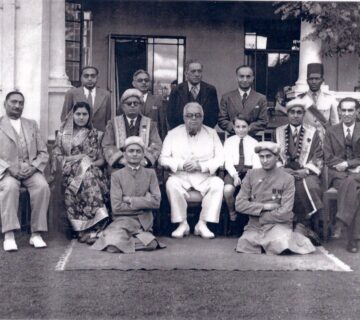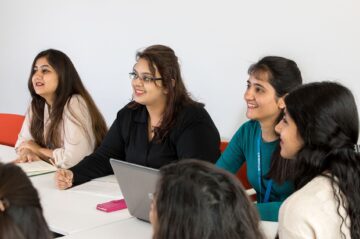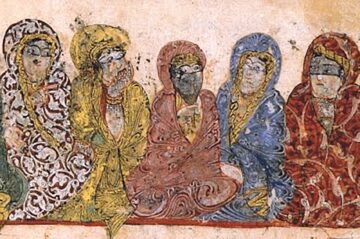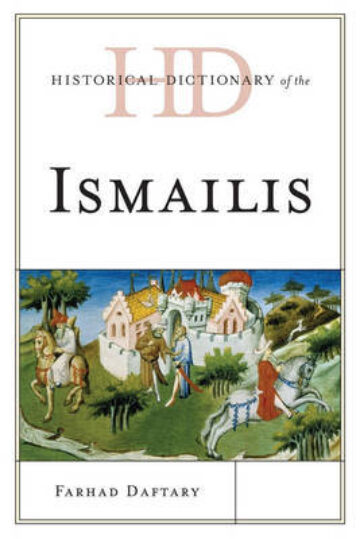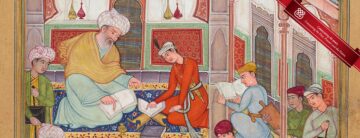Keywords: Qur’anMuslims believe that the Holy Qur’an contains divine revelations to the Prophet Muhammed received in Mecca and Medina over a period of 23 years in the early 7th century CE. More, Arabic, Maktab or kuttab, masjid(mosque; pl. masajid) Arabic derived from the root s-j-d, meaning ‘to prostrate’. In the early Islamic era, the word masjid meant a place of prayer which could be any clean…, majlis, jami‘, Bayt al Hikma, Rasail Ikhwan al-Safa, Diwan, knowledge, hikma, al-AzharA major mosque and institution of learning founded in Cairo by the Fatimid Imam-caliph al-Muʿizz (d. 975)., Nasir-i Khusraw, FatimidsMajor Muslim dynasty of Ismaili caliphs in North Africa (from 909) and later in Egypt (973–1171) More, Nizamiyya, Nizam al-Mulk, SaljuqMajor Muslim dynasty of Turkish origin in Persia and Iraq (1040–1194) and Syria (1078–1178)., embroidery, weaving, carpet-making, calligraphy, Ibn Sina, Aristotle, Euclid, Ptolemy, SafavidsA major Shi’i dynasty which ruled Persia (1501-1732 CE), and was succeeded by the Afsharids. (See also Qizilbash, Safawiyya.), ribat, khanqa, zawiya, jamatkhana, pesantren, Ibn Khaldun, Aligarh.
Abstract:The earliest revelation to the Prophet Muhammad evokes powerful symbols of learning and knowledge: “Read! Your Lord is full of generosity, instructing by the Pen, educating humanity about that which they do not know” (Qur’an 96:3-5).
In addition, the Quran distinguishes Adam from other created beings by virtue of the capacity gifted to him to “name everything” (2:31).
The value placed on knowledge in the Qur’an became the foundation for the development of education in all its different expressions among Muslims. This spirit was further reinforced by the need to remember and preserve the traditions of the Prophet.
Among the sayings of the Prophet were statements encouraging education. The acquisition of knowledge thus came to be perceived as part of one’s daily life and as a way of enhancing knowledge of the faith and its practices; faith and learning were seen to be interactive and not isolated from each other.
Author

Professor Azim Nanji
Azim Nanji is currently Special Advisor to the Provost of the Aga Khan University, and a member of the Board of Directors of the Global Centre for Pluralism in Ottawa, a joint partnership between His Highness the Aga KhanA title granted by the Shah of Persia to the then Ismaili Imam in 1818 and inherited by each of his successors to the Imamate. and the Government of Canada. He has held many prestigious academic and administrative appointments, most recently as Senior Associate Director of the Abbasi Program in Islamic Studies at Stanford University, where he was also lecturer in the Department of Religious Studies. From 1998 to 2008, Professor Nanji served as Director of the Institute of Ismaili Studies in London.
Professor Nanji has published numerous books and articles on religion, Islam and Ismailism, including: The Nizari Ismaili Tradition (1976), The Muslim Almanac (1996), Mapping Islamic Studies (1997) and The Historical Atlas of Islam (with M. Ruthven) (2004) and The Dictionary of Islam (with Razia Nanji), Penguin 2008. In addition, he has contributed numerous shorter studies and articles in journals and collective volumes including The Encyclopaedia of Islam, Encyclopaedia Iranica, Oxford Encyclopaedia of the Modern Islamic World, and A Companion to Ethics. He was the Associate Editor for the revised Second Edition of The Encyclopaedia of Religion.
Within the Aga Khan Development Network, he has served as a member of the task force for the Institute for the Study of Muslim Civilisations (AKU-ISMC) and Vice Chair of the Madrasa-based Early Childhood Education Programme in East Africa. He served as a member of the Steering Committee of the Aga Khan Award for Architecture in 1998, 2001 and 2016.


